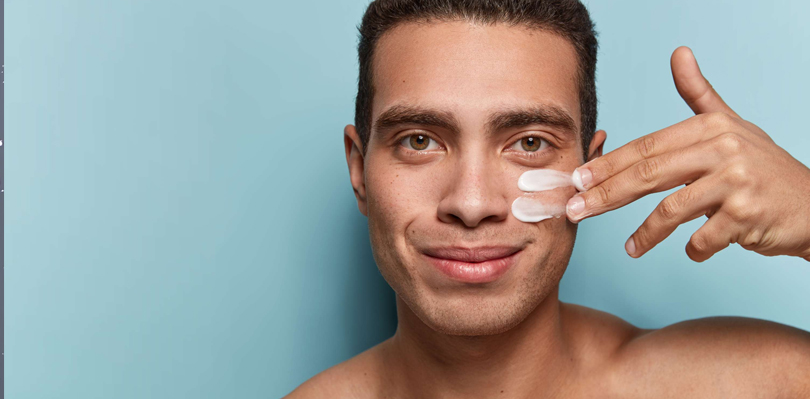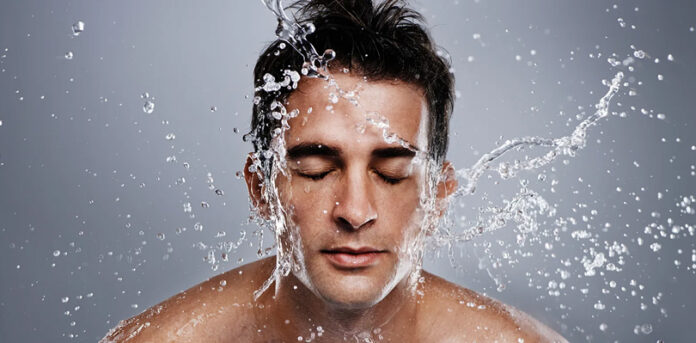Skincare for men is equally important as for women. Unfortunately, there’s a common misconception that skincare is unnecessary or only for women. However, men’s skin has unique characteristics and requires tailored care to maintain a healthy and vibrant appearance.
Men’s skin differs from women’s in several ways. It is generally thicker, has more collagen, and has higher sebum production, which can lead to oilier skin. Men’s skin is also prone to specific concerns like razor bumps, irritation, and excessive sweating. Understanding these differences is crucial in crafting an effective skincare routine.
Effective Skincare Tips For Men

Skincare is a crucial aspect of overall health and well-being that should not be undervalued or ignored by men. By understanding your skin’s individual needs and following a constant skincare regimen, you can achieve and maintain healthy, clear, and youthful-looking skin for years to come. Remember, good skincare is not just for women; it’s for everyone who values their health and appearance. So, gentlemen, take care of your skin by following these tips and tricks:
Cleansing
Cleansing is the basis of any successful skincare routine. Men should choose a facial cleanser suited to their specific skin type, whether it is oily, dry, or sensitive. Regular cleansing, ideally done twice daily—once in the morning and once before bedtime—ensures that dirt, excess oil, and impurities accumulated throughout the day are thoroughly removed.
Exfoliation
Exfoliation is an essential step in maintaining healthy skin, as it helps slough off dead skin cells and unclog pores. Men should aim to exfoliate their skin one to two times a week to encourage skin cell turnover and reveal a smoother, more youthful complexion. It’s essential to use a gentle exfoliator to avoid irritating the skin.
Moisturizing
Moisturizing is vital in maintaining the skin’s natural moisture balance. Men should choose a lightweight, non-greasy moisturizer that suits their skin type. Regular application of moisturizer not only keeps the skin hydrated but also helps prevent dryness and flakiness.
Sun Protection
Sunscreen is not exclusively for beach days; it should be a daily staple in every skincare routine. Men should apply sunscreen with a minimum SPF of 30, even on cloudy days, to protect their skin from harmful UV rays. Consistent sun protection helps prevent premature aging, sunburn and reduces the risk of skin cancer.
Shaving And Aftershave
For men who shave regularly, proper shaving techniques are vital to avoid irritation and ingrown hairs. Using a sharp razor and suitable shaving cream or gel can make a significant difference. After shaving, it is essential to apply an alcohol-free aftershave product to soothe the skin and prevent razor bumps or burns.
Simple Yet Effective Skincare Routine For Men
A basic daily skincare routine for men should encompass a morning and evening regimen:
Morning Routine:
- Begin your day with the following steps:
- Cleanse your face with a suitable facial cleanser to remove any impurities accumulated overnight.
- Apply a moisturizer with SPF to protect your skin from harmful UV rays throughout the day.
Evening Routine:
- Before bedtime, follow these steps:
- Cleanse your face thoroughly to remove dirt, oil, and pollutants accumulated during the day.
- Optionally, exfoliate your skin once or twice a week to promote cell turnover and maintain a smoother complexion.
- Moisturize your skin to keep it hydrated while you sleep, promoting skin repair and rejuvenation.
Targeting Specific Skin Concerns
Acne And Blemishes
Men struggling with acne and blemishes should use products containing ingredients like salicylic acid or benzoyl peroxide to combat breakouts. It is essential to avoid squeezing or picking at blemishes, as this can worsen inflammation and lead to scarring.
Aging And Wrinkles
To address signs of aging, men can incorporate anti-aging products containing ingredients such as retinol and antioxidants into their skincare routine. Additionally, adopting a healthy lifestyle, including a balanced diet and regular exercise, can promote youthful and radiant skin.
Razor Bumps And Irritation
Shaving can cause irritation and razor bumps for some men. To minimize these issues, consider shaving after a warm shower when the skin is softer and the hair more pliable. Applying a warm towel before shaving can also help open up pores and soften facial hair, leading to a smoother shaving experience.
The Role Of Professional Skincare
In some cases, seeking professional help from a dermatologist may be necessary, especially for persistent skin issues or specific treatments like chemical peels and laser therapy. If you have concerns about your skin or are struggling with persistent skin problems, do not hesitate to consult a qualified skincare professional for expert advice and tailored solutions.
FAQs
How often should I wash my face?
The frequency of washing your face depends on your skin type and lifestyle. Generally, it’s recommended to cleanse your face twice daily – once in the morning and once before bedtime. However, if you have oily or acne-prone skin, you may benefit from washing your face more frequently, such as after exercise or sweating.
What should I do if I have razor bumps after shaving?
Razor bumps are a common post-shave issue, particularly for men with curly hair. To minimize razor bumps and irritation, follow these steps: Use a sharp razor to reduce friction and tugging on the skin. Shave after a warm shower or apply a warm towel to soften facial hair and open up pores. Use a quality shaving cream or gel to create a smooth surface for shaving. Shave in the direction of hair growth to reduce irritation and minimize the risk of ingrown hairs.
How can I prevent premature aging of my skin?
Preventing premature aging requires a combination of a healthy lifestyle and a consistent skincare routine. Here are some essential tips: Protect your skin from harmful UV rays by using sunscreen with at least SPF 30 every day, even on cloudy days. Limit sun exposure, especially during peak hours, and consider wearing protective clothing, such as hats and sunglasses.

